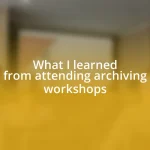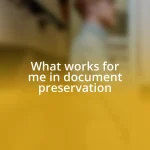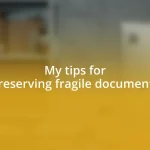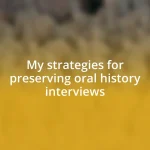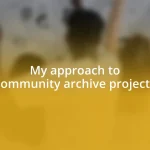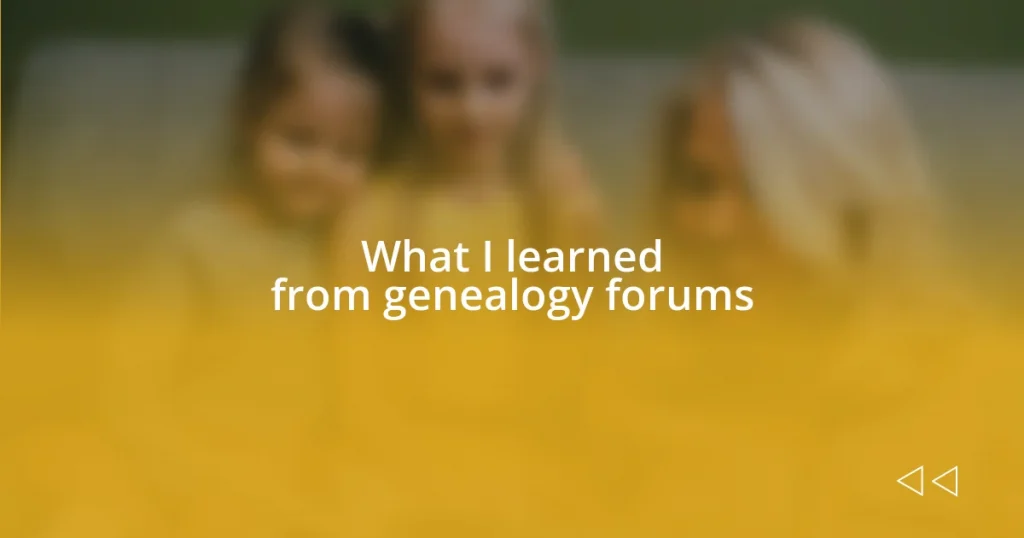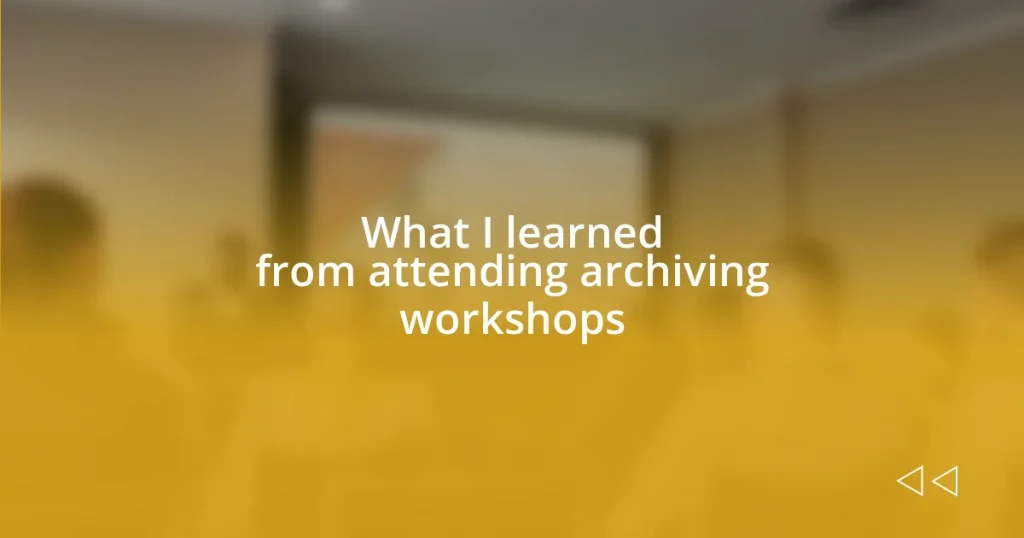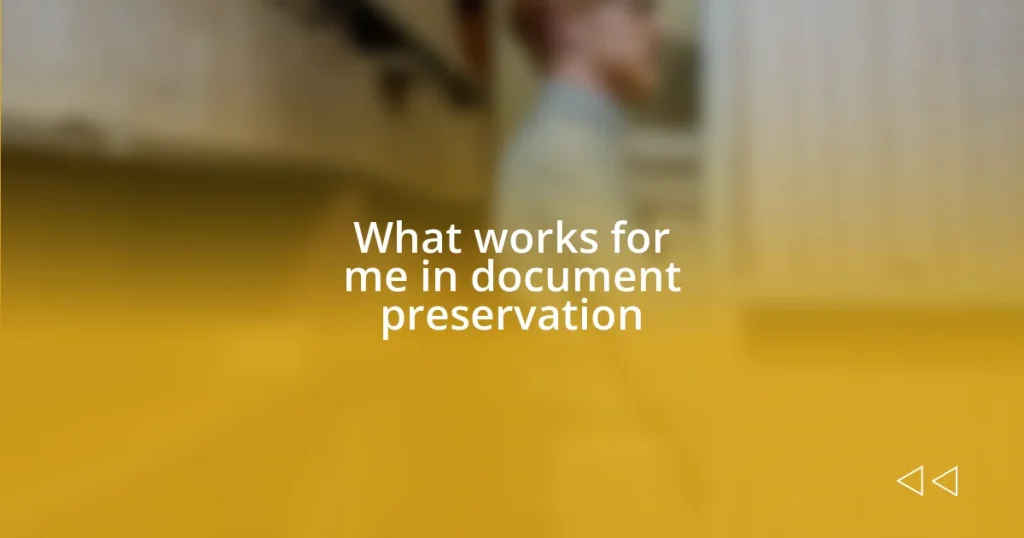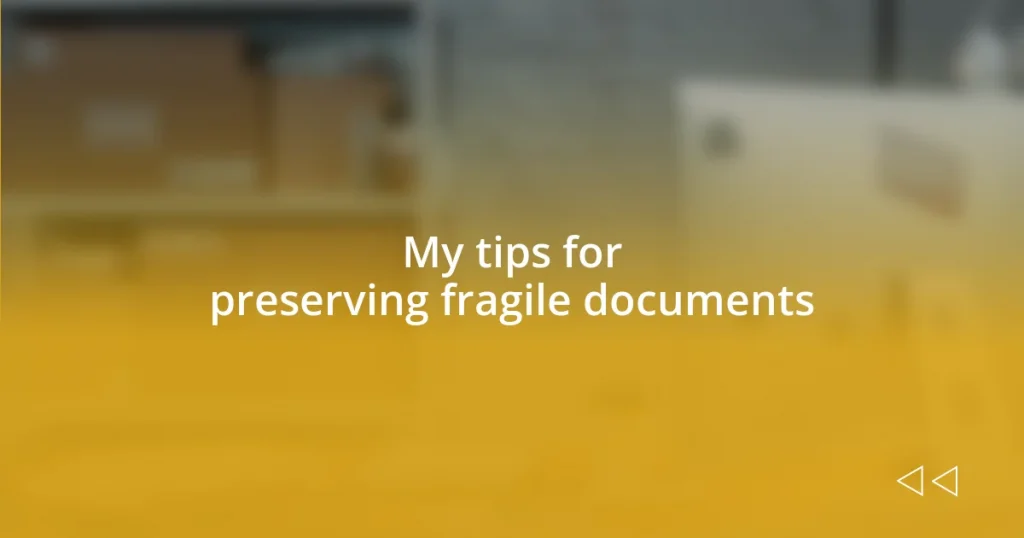Key takeaways:
- Genealogy forums foster a sense of community, providing emotional support and shared experiences, which enrich the journey of tracing family history.
- Participants benefit from diverse perspectives and specialized knowledge shared by others, helping them overcome research obstacles and find new strategies.
- Engagement techniques, such as asking questions, sharing personal stories, and expressing gratitude, enhance connections and collective learning within the forum environment.

Understanding genealogy forums
Genealogy forums are virtual meeting places where enthusiasts converge to share their experiences and discoveries about family history. I recall my first interaction on one such platform; I felt a sense of belonging as if I had found a community of long-lost cousins who understood my obsession with tracing my ancestry. Isn’t it heartwarming to think there are people out there eager to help you untangle the branches of your family tree?
Within these forums, you’ll find a wealth of expertise and personal stories. I vividly remember a thread where someone shared an emotional story about discovering a hidden family connection through an old photograph. It made me realize how powerful these connections can be—they are more than just facts; they are the stories that shape our identity. Have you ever contemplated how much we share tied to our ancestors’ lives?
Navigating genealogy forums can also teach you the importance of patience and perseverance. I had a thread where I asked for help with a particularly stubborn lineage, and while responses trickled in slowly, every bit of information felt like a piece of a puzzle. Sometimes, wondering if my search would ever yield results made me question my dedication—yet those moments of doubt can lead to the most rewarding breakthroughs.

Benefits of genealogy forums
Genealogy forums are incredibly beneficial for anyone wanting to dive deeper into their family history. One of the standout advantages is the diverse perspectives you encounter from contributors around the globe. I remember reading a post from someone researching a similar surname. Their insights opened my eyes to new resources and strategies I hadn’t considered before. It’s empowering to learn from others who have faced similar challenges.
Another key benefit is the availability of specialized knowledge. There was a time when I hit a brick wall in my research, feeling utterly stuck. I decided to seek advice from the forum, and an experienced genealogist reached out with strategies I hadn’t thought to try. Encouragement from experts can spark motivation and lead to breakthroughs in your own research. Have you ever felt that spark of inspiration when you receive unexpected guidance?
Lastly, these forums cultivate a sense of community and support. There’s something inherently comforting about sharing your genealogy journey with others who share the same passion. I fondly recall celebrating a member’s successful discovery of an ancestor after many years of effort; their joy felt like our collective victory. The bond we create over our family trees can be profoundly fulfilling, aligning our journeys with those who truly understand the emotional weight of our searches.
| Benefit | Description |
|---|---|
| Diverse Perspectives | Gain insights from contributors worldwide who may have faced similar research challenges. |
| Specialized Knowledge | Access expert advice that can help overcome research obstacles and inspire new strategies. |
| Community Support | Experience a sense of belonging and encouragement from fellow genealogy enthusiasts. |

Common themes in genealogy discussions
In exploring genealogy forums, I consistently notice recurring themes that resonate with many enthusiastic researchers. A significant one is the importance of collaboration; I’ve often seen members post about their brick walls while others chime in with fresh ideas, which can change the whole game. I recall reading about a user who managed to connect with a distant relative after seeking help with what seemed like a dead end. It’s astounding how a simple question can bridge gaps and create connections.
- Brick Walls: Many discussions center around common research obstacles, with members sharing their experiences and solutions for overcoming these hurdles.
- Resource Sharing: Members frequently exchange tips on lesser-known databases and tools that might not be on everyone’s radar, broadening our collective knowledge.
- Emotional Journeys: Participants candidly share the emotional weight of their discoveries, often linking personal tales that add depth to data.
- DNA Testing: There’s a fair amount of dialogue about the impacts and implications of genetic testing, with users discussing both the excitement and uncertainty it can bring.
- Heritage Celebrations: Stories about reconnecting with cultural roots or traditions often emerge, highlighting the personal significance of family history research.
Listening to these discussions, I realize how invaluable these forums are for emotional support. There was one moment where a member poured their heart out about grappling with a challenging family narrative. The empathetic responses made me appreciate the shared human experience in our genealogical quests. Such themes remind us that genealogy is not just about names and dates; it’s about memories, emotions, and a shared journey through history.

Techniques for effective forum participation
Engaging in genealogy forums can truly enhance your experience and effectiveness as a participant. One technique I’ve found invaluable is to be genuinely curious. When I encounter a post that intrigues me, I make it a point to dive deeper by asking follow-up questions. This not only helps me understand the topic better but also encourages the original poster to share more. Have you ever noticed how a simple inquiry can lead to rich discussions? It creates an environment where knowledge flows freely, and everyone learns.
Another strategy that’s worked well for me is to share my research stories, no matter how small. I remember posting about my struggle to trace a particular ancestor, and to my surprise, several members jumped in with similar experiences. Sharing vulnerabilities can be daunting, but it fosters connection and leads to unexpected insights. It’s amazing how a collective experience can provide clarity when you’re mired in confusion. Don’t you think our stories hold the power to inspire?
Lastly, I make a conscious effort to acknowledge and thank others for their input. Whether it’s a simple “thank you” or a more detailed response explaining how their advice helped, expressing gratitude creates a warm, inviting atmosphere. I once thanked a user whose suggestion about a lesser-known archive made a significant difference in my research. Their joy in receiving recognition changed the dynamic of our interaction. Building relationships in these forums isn’t merely beneficial; it’s essential for cultivating a supportive genealogy community.

Finding reliable information in forums
Finding reliable information in genealogy forums can be a bit like sifting for gold in a riverbed. I always check the credentials of those sharing data, looking for members who’ve demonstrated expertise or have a track record of accurate contributions. For instance, I once stumbled upon a post from a user who consistently provided sourced information, which made me feel more confident in engaging with their advice. Isn’t it interesting how trust can be built through consistent, reliable contributions?
Another tactic I employ is to cross-reference the information shared with external sources, such as official records or reputable websites. There’s a particular thread where a user claimed an ancestor was linked to a well-known historical figure, and after doing a bit of digging, I found discrepancies. This taught me the importance of verifying claims. Have you ever noticed how essential it is to tread carefully when someone’s family narrative sounds too dramatic?
Lastly, I value the discussions surrounding methodologies. When peers share how they approached a problem or what specific steps they took to gather their evidence, it gives me a clearer picture of their reliability. I remember a discussion about a local history book that several members pointed to when researching a particular region. Their experience boosted my confidence in utilizing that resource. It makes me wonder: how much can we learn just by listening to the approaches of seasoned researchers?

Building connections with other genealogists
Building connections with fellow genealogists can feel like joining a large extended family. I remember my first post in a forum about my great-grandfather’s elusive past; the encouragement I received from others was heartwarming. It’s surprising how sharing our individual journeys can lead to newfound friendships and support—don’t you think there’s something magical in that connection?
Over time, I’ve focused on not only seeking help but also offering it. A few months ago, I answered a thread about tracing Irish ancestors with some tips from my own research journey. The genuine appreciation from the original poster made me feel like an integral part of the community. It is in these moments of exchange that I realize how important it is to give back; after all, isn’t that what a true community is about?
Lastly, I’ve found that staying engaged with ongoing conversations can lead to deeper relationships. Following up on a previous discussion about migration patterns not only showcased my interest but also sparked a buddy-like rapport with a member who had a wealth of experience. Effective connections often thrive on mutual engagement—have you ever noticed how a simple follow-up can turn a casual interaction into a lasting friendship?

Tools to enhance forum experience
Digital tools and resources can truly elevate your experience on genealogy forums. I often rely on browser extensions that help me organize and save valuable threads for later reference. For instance, once I found a fantastic guide on deciphering old handwriting, and thanks to a note-taking extension, I could bookmark it easily. Have you ever wished for a way to keep track of those nuggets of wisdom shared by others?
I also enjoy utilizing genealogy software that allows for seamless integration of information I gather from forums. This past year, I adopted a software that syncs with my organized notes and keeps my family trees updated automatically. The moment I realized I could connect someone else’s findings to my own records was a breakthrough. It’s like building a puzzle together, don’t you think?
Another fantastic resource is mobile apps tailored for genealogy research, which let me engage with forums on the go. Just last week, while waiting for an appointment, I discovered a discussion about an ancestor’s local newspaper clippings. Participating in real-time discussions, even in such unassuming moments, has opened up new perspectives that I might not have considered before. Isn’t it fascinating how our schedules can be transformed into opportunities for learning?
